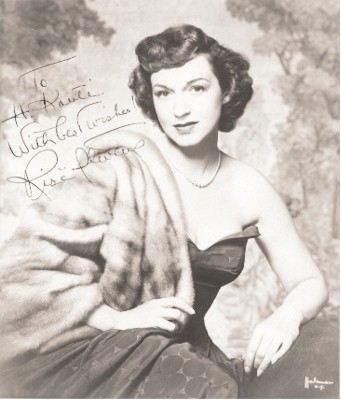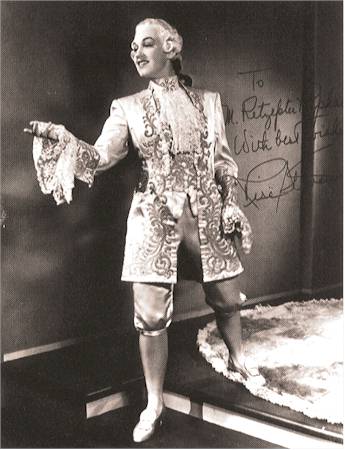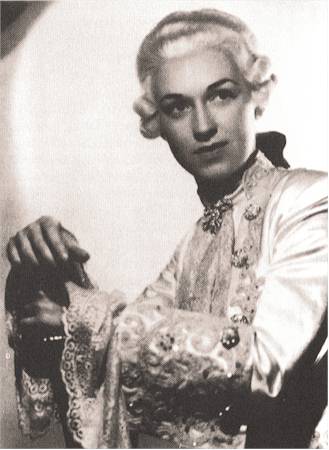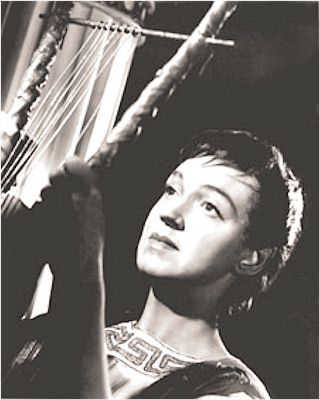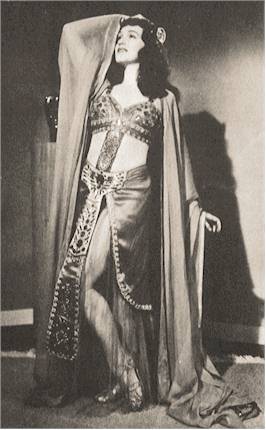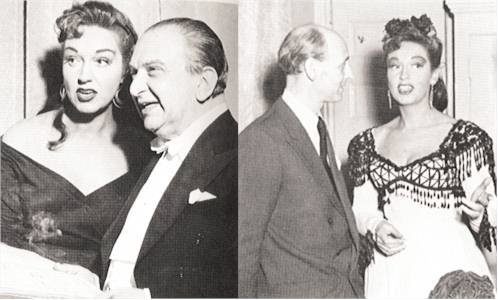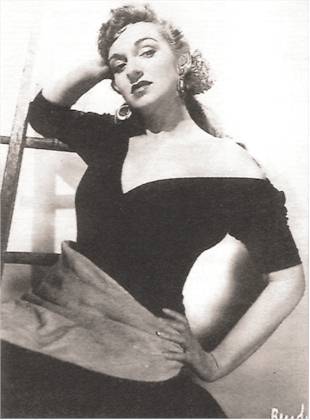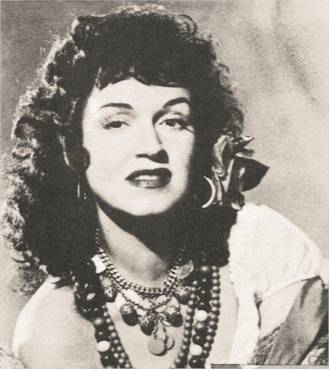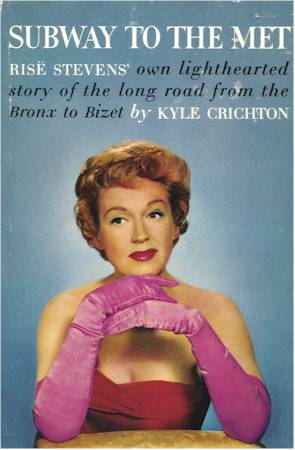American mezzo-soprano, b. 1913
Biographical notes: She was born in New York and studied at New York’s Juilliard School of Music for three years. She went to Vienna where she was trained by Marie Gutheil-Schoder and Herbert Graf. She made her début as Mignon in Prag in 1936 and stayed there until 1938, also appearing in guest appearances at the Vienna State Opera. Her Octavian was one of her finest and most accomplished roles. She was engaged at the Teatro Colón in 1938 (again as Octavian) and was invited to the Glyndebourne Festival in 1939 where she was heard as Dorabella and Cherubino. In 1938 she made her début at the Met as Mignon. Three days later, she she sang Octavian opposite Lotte Lehmann. For over two decades (until 1961) the singer was considered the Met’s leading mezzo-soprano. Her most successful roles included Cherubino, Octavian, Dalila, Carmen, Laura, Hänsel and Marina. She also appeared in Paris, London, at La Scala and at the Glyndebourne Festival. In 1941 the singer’s beautiful voice and her attractive appearance led the film industry in Hollywood to produce several music-films with her, such as “The Chocolate Soldier” with Nelson Eddy and “Going my way” with Bing Crosby. She sang her last performance (Carmen) at the Met in 1961. After her retirement Stevens served as General Manager of the Metropolitan Opera Touring Company until 1966 and later coached the new generation of singers at the Met. As Octavian
“Wie du warst! Wie du bist! Das weiss niemand, das ahnt keiner! Engel! Nein! Selig bin ich,
dass ich der Einzige bin, der weiss, wie du bist! Keiner ahnt es! Niemand weiss es! Du, Du, Du! Was heisst das “Du”? was “Du und ich”? Hat denn das einen Sinn? Das sind Worte,
blosse Worte, nicht? Du sag! Aber dennoch: Es ist etwas in ihnen, ein Schwindeln, ein Ziehen, ein Sehnen und Drängen, ein Schmachten und Brennen: Wie jetzt meine Hand zu
deiner Hand kommt, das Zudirwolllen, das Dichumklammern, das bin ich, das will zu dir; aber das Ich vergeht in dem Du... Ich bin dein Bub, aber wenn mir dann Hören und Sehen vergeht - wo ist dann dein Bub?”
As Orfeo, her favorite role
As Dalila
With Fritz Reiner (left) and Sir Rudolf Bing after a performance of Carmen (right)
Carmen - one of her greatest achievements at the Met
Comment:
The rich intensity of her voice and her reliable feeling for the right style, paired with a distinctive dramatic temperament, enabled her to succeed in an unusually wide-spread repertory.
She is a fiery and juvenile Octavian in two live performances conducted by Bodanzky opposite Lotte Lehmann, Marita Farell and Emanuel List, and in a performance under Fritz Reiner opposite
She sings a young and ardent Cherubino in Vittorio Gui’s production of Le Nozze di Figaro which belongs to the most lively recordings of the work (ensemble singing!).
Stevens was called the “best Carmen after Conchita Supervia” by some critics. To me, her Carmen is an accurate but slightly faceless character. It is nevertheless beautifully sung. And what a
tempting Carmen she must have been on stage!
|
||||||||||||||||||||||||||||||||||||||||||||||
